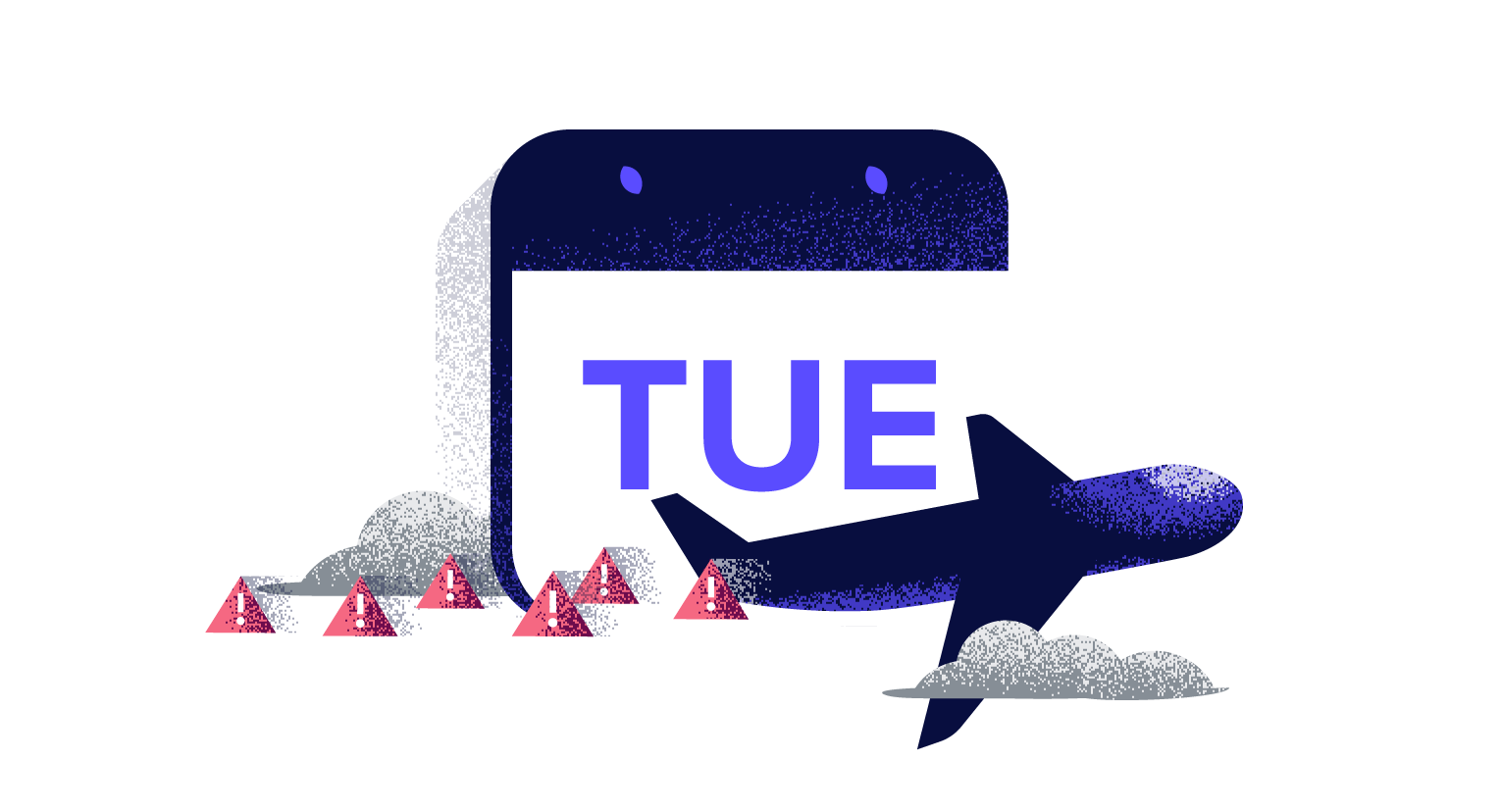Unpacking Travel Tuesday

Riskified’s first-party data reveals 26% year-over-year growth in online travel bookings during major sales event.
Travel Tuesday is the day after Black Friday and Cyber Monday (BFCM) weekend, when travel merchants worldwide offer special discounts. Coincidentally, it follows what is often the busiest travel day in the United States.
Now in its eighth official iteration, Travel Tuesday is a shopping event initially championed by travel booking platform Hopper. Consumers planning unforgettable adventures or gifting getaways favor this day to purchase flights, accommodations, train tickets, and rental cars. For merchants, it is an opportune time to provide new and returning customers with great promotions and premium experiences.
On Travel Tuesday 2024, Riskified saw a 26% increase in gross merchandise value (GMV) in the travel category compared to 2023. Ticketing, strongly linked to the travel sector — especially with the growing popularity of concert-related travel — experienced a 26% year-over-year growth in GMV.
Fraud doesn’t go on vacation
Contrary to the spirit of the holidays, travel is a lucrative segment for fraudsters and creates significant risk for merchants.
According to Riskified senior data analyst, Lev Gal, and data analyst, Yael Hemo, this Travel Tuesday saw more than a 50% increase in fraud attempts for flight bookings year over year. Hotels were 10% riskier than on Travel Tuesday in 2023. Land transportation — which includes bus, train, and car rentals — was the least risky segment within the Travel industry, yet it remains riskier than most other sectors.
To help merchants combat fraud attempts, Riskified uses machine learning models specific to each segment of the travel industry to detect fraud more precisely.
Considering departures, destinations, and demand
When analyzing travel, Riskified experts repeatedly encounter scenarios where fraudsters target flight routes and hotel locations in specific regions — from Australia to Bali, for example. They often use reward points or stolen cards for purchases, reselling to customers for cash. Only once the fraudsters are uncovered and blocked do they change the locations for future attempts.
In accommodations, luxury hotels are a prime target. Fraudsters seemingly gravitate toward these properties due to their emphasis on customer experience and satisfaction.
“They are looking for high-quality experiences with high consumer demand,” said Lev. “And although 5-star hotels are the riskiest, the 4-star hotels potentially face a more significant profit drain.”
In flights, international segments have been a lucrative target for fraudsters in the past two years, in part because their average order value is nearly 3.5 times higher than domestic tickets. However, domestic flights aren’t immune to risk. Airlines may allow more lenient verification processes on these routes, and during a large-scale fraud attack, risk can soar.
Across all travel segments, high-volume months lead to higher fraudulent activity, as fraudsters aim to disguise their purchases within those of good consumers. Travel merchants, especially during these peak times, face challenges in accurately detecting fraud — compounded by younger travelers and an increase in last-minute bookings.
Safeguarding trips and travelers’ trust
The observed trends underscore the critical need to be vigilant. Fraudsters are continually finding creative and sophisticated ways to exploit your business on peak booking days like Travel Tuesday and beyond. Failure to do so is extremely costly.
By staying ahead of these evolving tactics, leveraging an AI-powered fraud and risk intelligence platform, and carefully balancing security with a seamless customer experience, you can protect your revenue streams, foster loyalty, and ensure sustainable growth.
Learn more about how Riskified can help your business.


